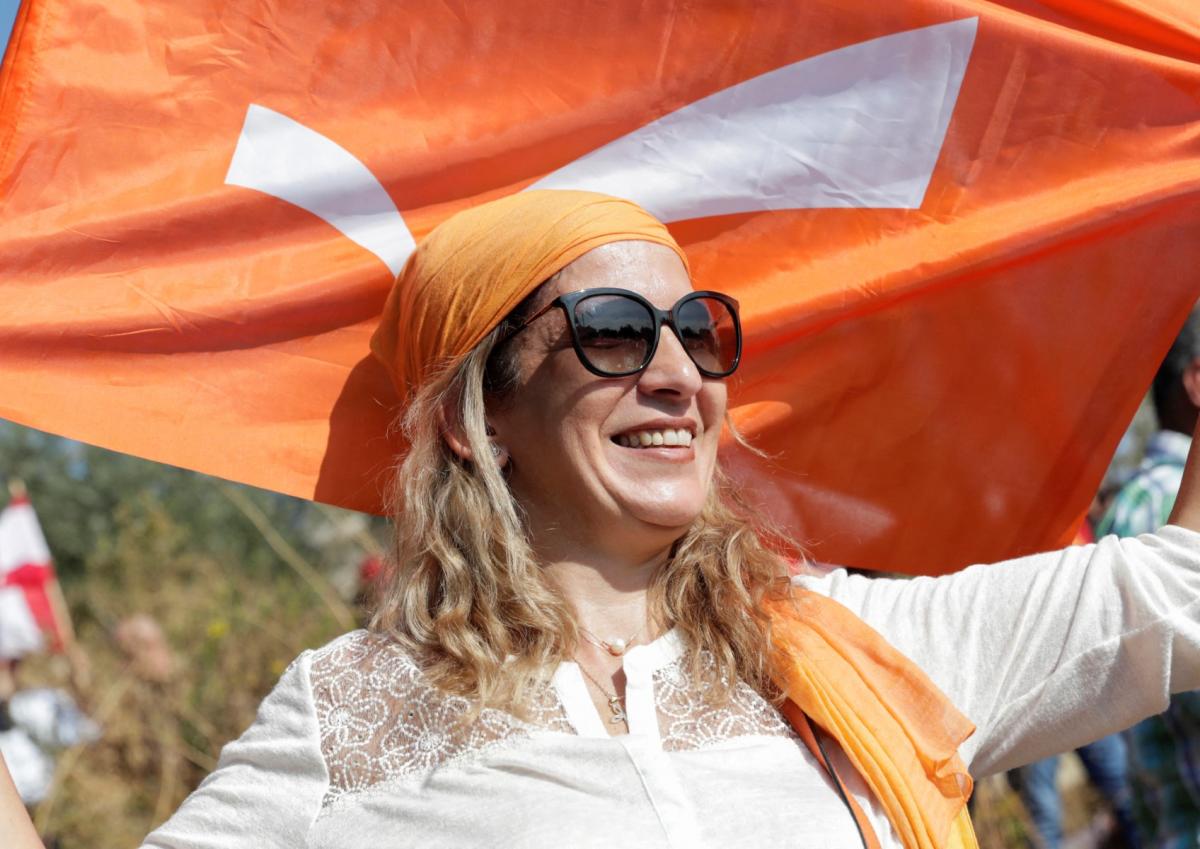Under the slogan “Occupiers in Refugee Clothing,” the Free Patriotic Movement (FPM) is organizing a rally this Saturday, April 26, 2025, at 6 p.m. at the Michel El Murr Sports Complex in Nahr El-Mot (Metn). The event marks the tenth anniversary of the withdrawal of the Syrian army from Lebanon in 2005 and aims to sound the alarm once again about the dangers posed by the ongoing Syrian displacement, amid sweeping changes in Lebanon, the region, and the world—especially following the fall of the Assad regime in Damascus.
On the night of April 18, 1989, at the height of the Liberation War he launched against the Syrian occupation, then-interim Prime Minister General Michel Aoun declared via Voice of Lebanon radio: "I have loosened the Syrian nail," adding, "I will break Hafez al-Assad’s head." He concluded by saying, "Tomorrow, when Syria withdraws its army from Lebanon, we will build the best of relations with it."
Since then, the movement founded by Aoun—later known as the Free Patriotic Movement—has relentlessly campaigned for the end of Syrian domination, even after Aoun himself was exiled following the events of October 13, 1990. His insistence on amending the Taif Agreement by adding a simple “comma”—a demand for a scheduled Syrian withdrawal—was rejected. Yet, he famously declared: “The world can crush me, but it will never take my signature.” Crushed he was, but he never signed.
The flame of liberation never died among Aoun’s supporters. From 1990 to 2005, they fought a peaceful struggle to end Syria’s military and political grip over Lebanon, a grip that extended from appointing the lowliest gatekeeper to installing presidents, ministers, MPs, and military commanders, all under international and regional sponsorship.
The FPM paid a heavy price: exile, persecution, arrests, and political exclusion. Yet, even in the darkest times—such as the mass arrests of August 7 and 9—they remained steadfast, clinging to their rallying cry: “Freedom, Sovereignty, Independence.”
When the internal Lebanese will for liberation, spearheaded by the FPM, began to converge with international—particularly American—pressure for a Syrian withdrawal, tangible momentum grew. General Aoun himself worked with U.S. lawmakers to push legislation advocating for Lebanese sovereignty. In 2003, Washington expanded the scope to include Syrian liberation. During a phone-in meeting with Lebanese activists, Aoun was asked when he would return to Lebanon. His reply: "In 2005, after the Syrian army’s withdrawal and before the parliamentary elections."
In Paris, on November 22, 2004, Aoun convened a conference to prepare his team for Lebanon’s next phase: a post-Syrian future and a return to political life through elections. He even sent personal letters, carried by FPM activists, to various Lebanese leaders and to Syrian President Bashar al-Assad, urging a dignified Syrian withdrawal to preserve neighborly relations and to foster cooperation after liberation.
Few took him seriously at the time. Activist Hikmat Dib, who was tasked with delivering Aoun’s letter to then-Prime Minister Rafik Hariri, recalled Hariri’s dismissive reaction: "Do you really believe the Syrian army will leave?"
Yet leave it did. Twenty years ago, Lebanon saw the departure of all foreign troops—only for a new, complex crisis to unfold.
On March 15, 2011, the Syrian uprising erupted as part of the so-called Arab Spring. As parts of Syria fell to rebel forces, waves of Syrian refugees began flooding into Lebanon. Initially numbering just 3,000, the influx quickly escalated. From the early days, Aoun and then-Foreign Minister Gebran Bassil sounded the alarm about the rising refugee numbers and the looming threat to Lebanon’s stability—only to be branded "racists" by their critics.
General Aoun later recounted meeting Syrian Reconciliation Minister Ali Haidar at his residence in Rabieh after the Syrian army re-took Qusayr in 2013. Aoun proposed setting up refugee camps near Syria’s liberated areas to prevent the refugee crisis from spiraling out of control. Despite repeated calls—including at international forums by President Michel Aoun—to repatriate the displaced, the refugee presence only grew, with political, security, economic, and social consequences for Lebanon.
It became evident that Syria’s regime, along with international powers, preferred keeping the refugees in Lebanon—Syria to avoid the burden, and the international community for broader strategic reasons.
Even after Michel Aoun assumed the presidency and Gebran Bassil led Lebanon’s foreign policy, the FPM remained the loudest voice demanding refugee repatriation. Today, over two million Syrians reside in Lebanon, a country already weakened by economic collapse, financial meltdown, and chronic instability.
Through today's rally, and by presenting hard facts and alarming projections, FPM leader Gebran Bassil hopes to awaken both the authorities and the Lebanese people to the existential threat Syrian displacement poses. He warns against dismissing the issue simply because it is the FPM raising it—an attitude he decries as dangerous complacency.
Yes, there are genuine refugees among them, and international law and basic human compassion warrant protection for some. But the pretext of fleeing Assad has largely evaporated with Assad’s fall. Today, Lebanon is building new diplomatic ties with Syria’s new President, Ahmad al-Sharaa, and refugee return is firmly on the bilateral agenda.
In truth, the situation now looks less like a refugee crisis and more like an occupation in disguise. And just as the FPM historically led the fight against foreign occupation, it vows today to continue the struggle—through all peaceful, legal, and diplomatic means available—to liberate Lebanon once again.
Please post your comments on:
[email protected]
 Politics
Politics







